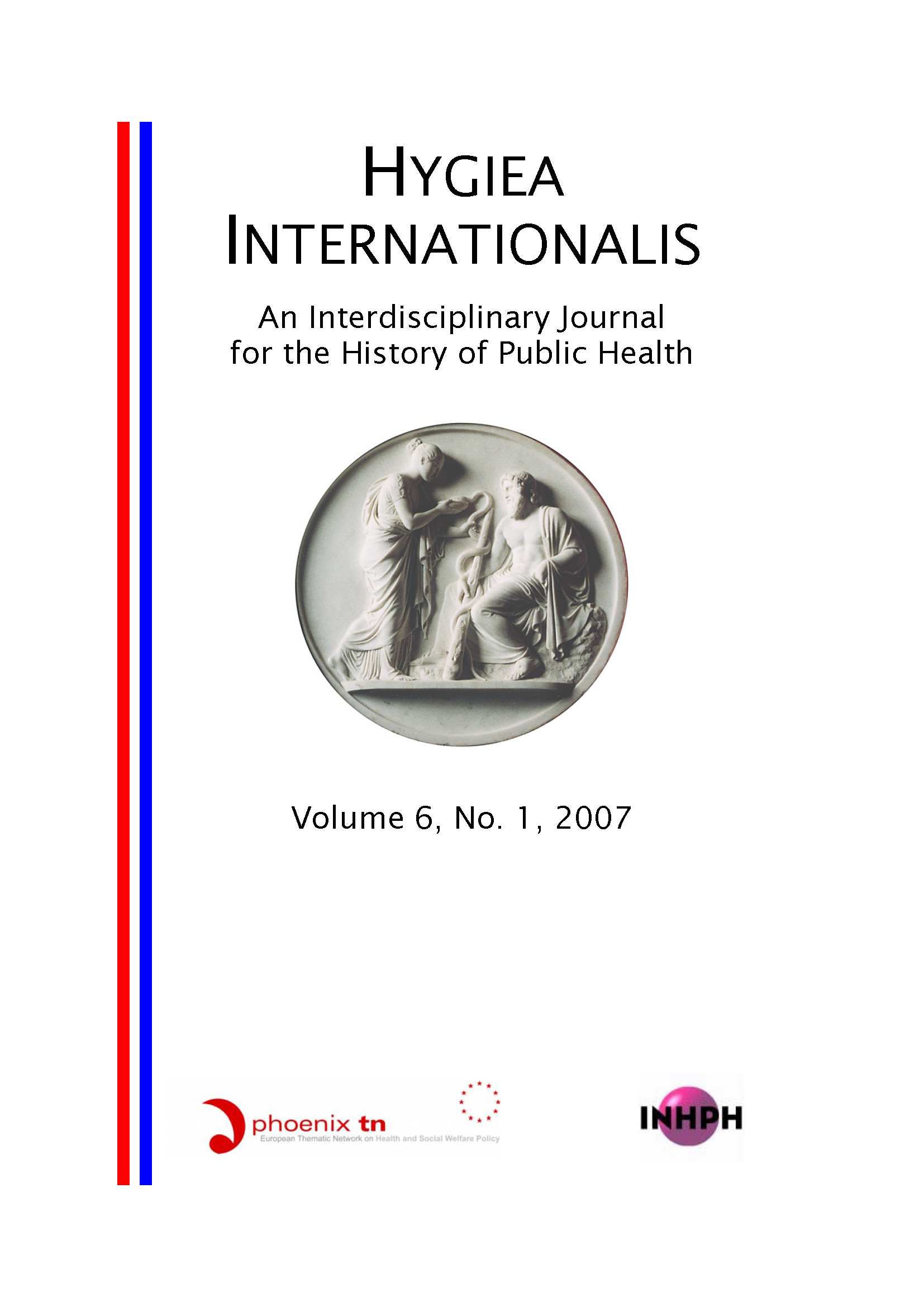The Price of Unification
The Emergence of Health & Welfare Policy in Pre-Bismarckian Prussia
DOI:
https://doi.org/10.3384/hygiea.1403-8668.076125Keywords:
Prussia, legislation, social insurance, health insurance, poor relief, welfareAbstract
The article aims to give a concise overview on the health and social welfare politics of the kingdom of Prussia in the 19th century. Considering that Prussia in 19th century was a highly fragmented territory in terms of economical and social structure this is understood as part of unification policy. 19th century social welfare policy was not restricted on enacting poor law but comprised as different fields as industrial codes, municipal codes and sanitary police. At the same time, until the workers’ insurance of the 1880ies the state itself did not immediatly contribute to health care provision and poor relief but only set the legislative frame. On the other hand, still workers insurance in the Bismarckian era not mainly intended social balance but the unification of the new “Reich” and was a powerful tool of the internal foundation of the new empire of 1871.Downloads
Published
2007-07-19
How to Cite
Dross, F. (2007). The Price of Unification: The Emergence of Health & Welfare Policy in Pre-Bismarckian Prussia. Hygiea Internationalis: An Interdisciplinary Journal for the History of Public Health, 6(1), 25–39. https://doi.org/10.3384/hygiea.1403-8668.076125
Issue
Section
Articles
License
Copyright (c) 2007 the Author(s)

This work is licensed under a Creative Commons Attribution-NonCommercial 4.0 International License.






